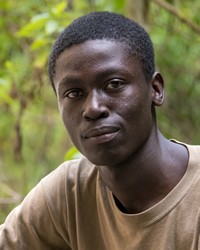The Arusha Maasai speak Kwaya, an Eastern Nilotic language, which is shared by Maasai groups across Kenya and northern Tanzania. The Maa language has several dialects, with the Arusha Maasai speaking forms being similar to those of other Maasai dialects. They also commonly use Swahili for communication with other groups and in formal settings.
Historically, the Maasai are a pastoralist people whose territory spans the Great Rift Valley region. The Arusha Maasai in particular are part of this broader Maasai community. Their history includes seasonal movement (transhumance) in search of pasture and water for their cattle. Over time, many have been influenced by sedentary agriculture, land pressure, governmental policies, and contact with other groups.
The Arusha Maasai often live in semi?nomadic communities or manyattas (homesteads) that may move according to grazing and water availability. Their main source of livelihood is pastoralism: raising cattle, goats, and sheep. Animal products such as milk, meat, and sometimes blood are central to both diet and economy.
Housing in traditional manyattas is simple: huts constructed using natural materials such as poles, mud, cow dung, grass thatch, with fencing (enkang or boma) to protect livestock, particularly at night. Women are principally responsible for house building, water gathering, firewood collection, cooking, and milking cattle. Men manage the herds, decision?making, and protection of livestock.
Many Arusha Maasai are under pressure from reduced grazing land, environmental degradation (drought, pasture scarcity), changing climate, and from policies that enforce settlement or restrict traditional movement. Access to education, health care, water, and infrastructure tends to be limited in more remote areas. Young people often learn Swahili in school; many are bilingual in Maa and Swahili.
The Arusha Maasai have traditional beliefs centered around a supreme deity known as Enkai (also "Engai"). Enkai is viewed as the creator, provider of rain, fertility, and protector of the people. Enkai is sometimes perceived in dual aspects—one benevolent, one wrathful—especially in relation to weather, drought, and misfortune.
Spiritual leadership is embodied in ritual specialists (often called Laibon or similar terms) who mediate between the people and Enkai. These leaders conduct ceremonies, prayers for rain, fertility, healing, guidance, and also rituals to avert misfortune or to deal with illness. Ancestral spirits, belief in witchcraft or sorcery, and in spiritual forces tied to land and nature are also part of their worldview.
With growing contact with Christianity and other religions, many Maasai have adopted Christian faith, but they often integrate it with traditional beliefs, so syncretism is common. Some Christian groups among the Maasai actively seek to address this mixed religious identity.
The Arusha Maasai need deeper discipleship and teaching that respectfully engages their traditional beliefs, helping them understand the Christian faith through the lens of their own worldview while discerning and disentangling practices that conflict with biblical truth. They need strong, indigenous Christian leaders—pastors, teachers, and elders—who speak Maa, understand Maasai culture, and are trusted within their communities. They need spiritual support for issues such as fear, spiritual oppression, witchcraft, and intercession, as many are deeply affected by spiritual forces and require God-honoring ways to confront them. Most need protection of their grazing lands, freedom of movement, and access to water and pasture to sustain their livelihoods and preserve both their economic stability and spiritual identity.
Pray for a deep spiritual awakening among the Arusha Maasai, that many would move beyond cultural or nominal expressions of religion into a genuine, life-transforming faith in Christ.
Pray for the Arusha Maasai Christians, that they'd take the Great Commission to heart and proclaim the gospel and make disciples near and far.
Pray for the rise of faithful, trusted Maa-speaking leaders who will shepherd their communities with wisdom and love, nurturing maturity in Christ.
Lift up those burdened by fear, sorcery, and spiritual oppression, asking God to bring deliverance, healing, and lasting peace through the power of Jesus.
Pray for the translation and wide distribution of the Bible, gospel recordings, worship songs, and teaching materials in Maa—especially in oral form for those who cannot read—so that every heart can hear and understand the Good News.
Pray for the children and youth—that they would be drawn to Christ, discovering in Him a foundation that not only strengthens their faith but also honors and uplifts the beauty of their identity.
Scripture Prayers for the Maasai, Arusha in Tanzania.
Britannica: Maasai people, Culture, language, history — https://www.britannica.com/topic/Maasai
Maasai Education Foundation: Maasai Culture and Pastoralism — https://maasaieducationfoundation.org/maasai-culture/
EveryCulture: Religion and expres
| Profile Source: Joshua Project |










